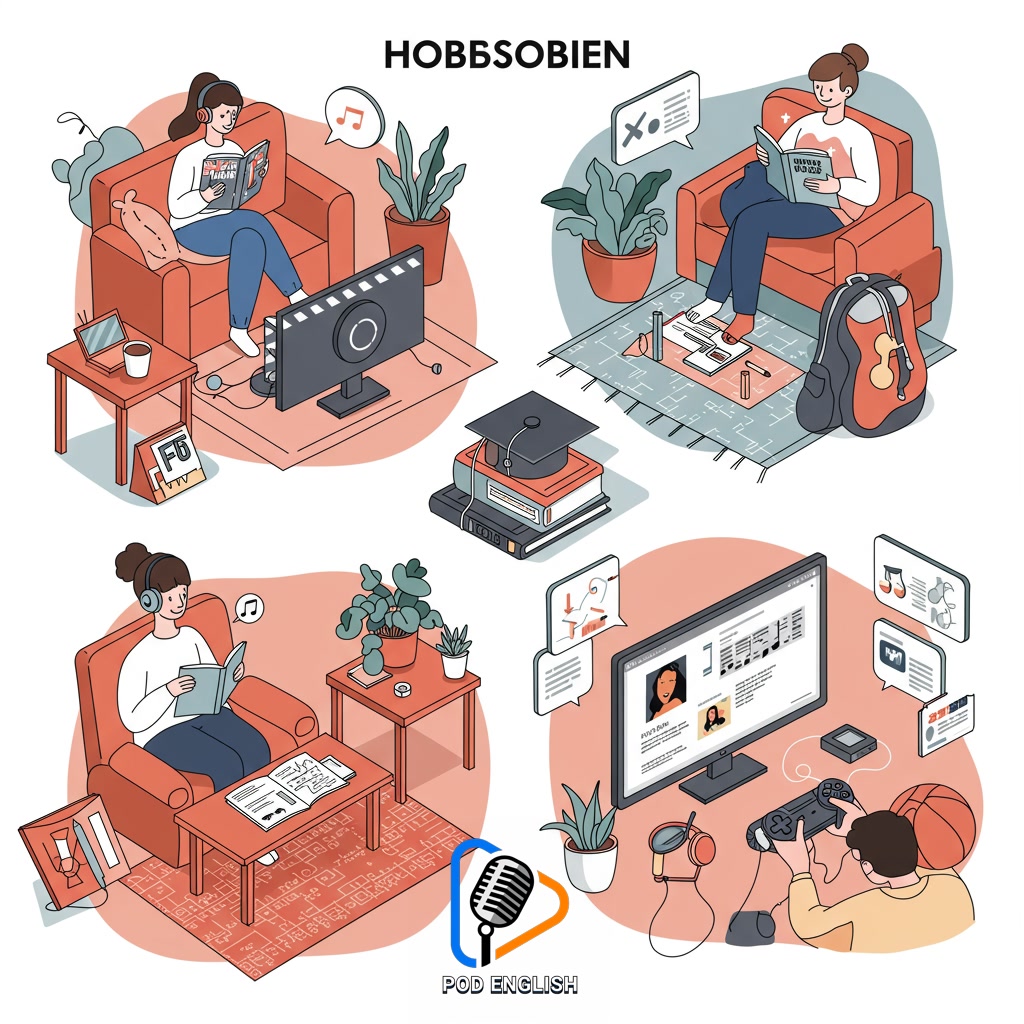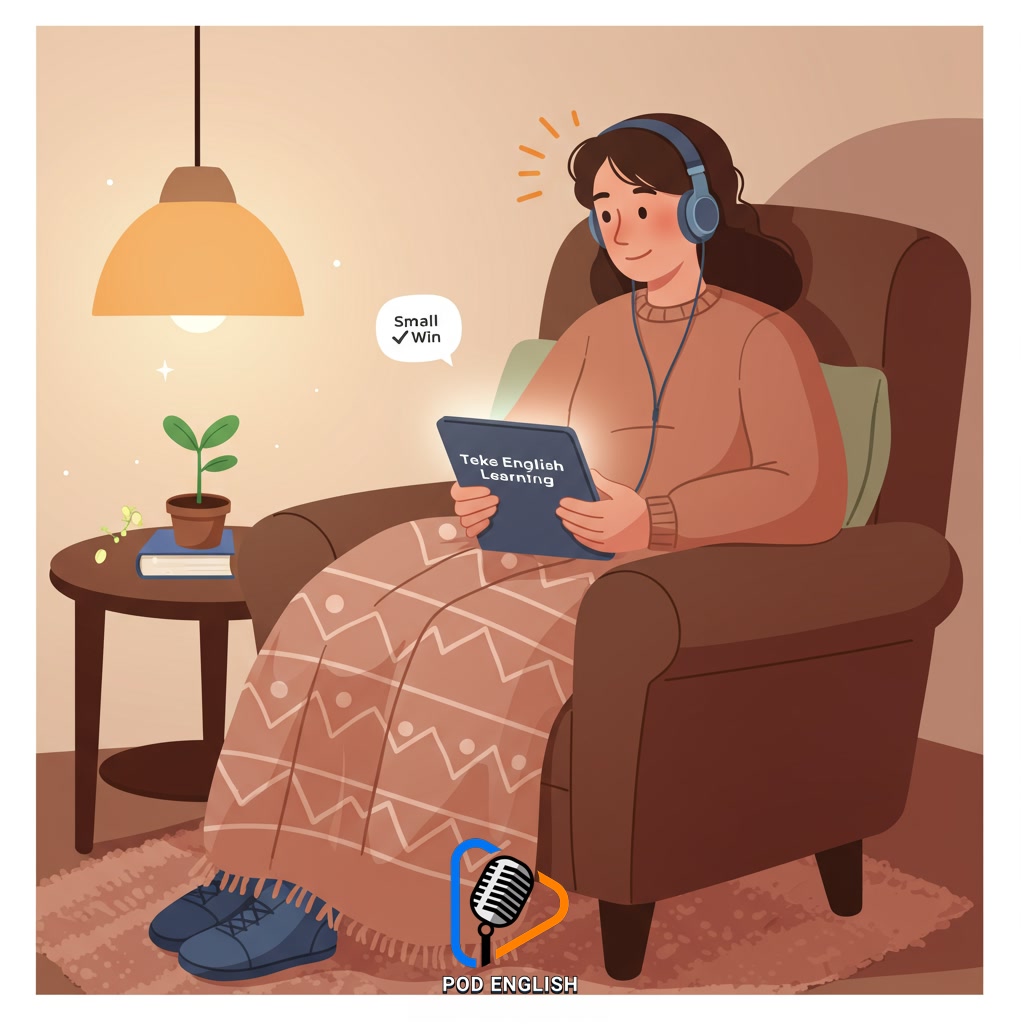Learn English
Making Your English Learning Journey Fun: How to Study English on Tough Days

The article “Making Your English Learning Journey Fun: How to Study English on Tough Days” explores strategies to keep your English practice enjoyable and effective, even when facing challenges or low motivation. It offers practical tips on how to maintain consistency and find joy in the process of language acquisition during difficult periods. The focus is on making the effort to study English sustainable and engaging, ensuring progress continues regardless of external factors. This guide provides insights on adapting your approach to study English to overcome mental hurdles.
Table of Contents
- Section 1: Acknowledging the Struggle: Why Tough Days Make Studying Hard
- Section 2: Redefining ‘Study’: Lowering the Bar Without Giving Up
- Section 3: Fun & Low-Effort Ways to Engage with English
- Section 4: Connecting English to Your Hobbies and Interests
- Section 5: The Power of Small Wins and Self-Compassion
Section 1: Acknowledging the Struggle: Why Tough Days Make Studying Hard
It’s perfectly normal to have days when studying English feels like a massive challenge. These ‘tough days’ can arise for many reasons, making it difficult to focus or find the motivation to open your books or apps. Perhaps you’re feeling tired, stressed from work or other commitments, or simply overwhelmed by the complexities of the language. On such days, your brain might feel sluggish, making it harder to absorb new vocabulary or grammar rules. You might feel frustrated by lack of progress or discouraged by mistakes. Acknowledging that these struggles are a common part of the language learning journey is the first step. Understanding *why* you feel this way on certain days helps you approach the problem more effectively, rather than getting down on yourself.

Acknowledging the Struggle: Why Tough Days Make Studying Hard
Section 2: Redefining ‘Study’: Lowering the Bar Without Giving Up
On those challenging days when sitting down for a traditional study session feels impossible, it’s crucial to redefine what ‘studying’ means. Instead of forcing yourself through dense grammar exercises or lengthy reading passages, lower the bar significantly. ‘Study’ can become listening to a single English song, watching a short, simple English video for just five minutes, or reviewing a few flashcards while relaxing. The goal isn’t deep learning on these days, but rather maintaining consistency and keeping your connection to the language alive. Doing a small, manageable activity is infinitely better than doing nothing at all. This approach prevents guilt and keeps the habit going, making it easier to pick up the pace again when your energy returns.

Redefining ‘Study’: Lowering the Bar Without Giving Up
Section 3: Fun & Low-Effort Ways to Engage with English
Building on the idea of redefining study, tough days are perfect for embracing low-effort engagement with English. Instead of heavy grammar drills, think about activities that immerse you without feeling like work. This could involve watching a short YouTube video or a clip from a favorite show in English, even with subtitles. Listening to English music or a light podcast while doing chores or commuting is another great option. Quick bursts of practice using a language learning app for vocabulary or simple phrases can also keep the momentum going. Reading something light like a comic strip, a simple news article, or even changing your phone’s language settings provides exposure without demanding intense focus. The goal is consistent, gentle interaction that keeps English present in your daily life, making progress sustainable even when motivation is low.

Fun & Low-Effort Ways to Engage with English
Section 4: Connecting English to Your Hobbies and Interests
Building on the idea of redefining study, tough days are perfect for embracing low-effort engagement with English. Instead of heavy grammar drills, think about activities that immerse you without feeling like work. A fantastic way to do this is by connecting English directly to your existing hobbies and interests. Do you love watching movies? Try watching with English audio and subtitles. Are you into gaming? Switch the game language to English. If you enjoy cooking, find English recipes or watch cooking shows in English. Reading about your favorite topics online? Look for articles or blogs written in English. This approach makes learning feel less like a chore and more like a natural extension of things you already enjoy, making it much easier to stay consistent and motivated, even when you’re feeling down or tired. It turns passive consumption into active, enjoyable learning.

Connecting English to Your Hobbies and Interests
Section 5: The Power of Small Wins and Self-Compassion
Building on the idea of embracing low-effort engagement, tough days are also when we truly appreciate the power of small wins and self-compassion. When you’re feeling drained, simply watching a short English video, reading a single paragraph, or listening to one song counts as a significant victory. These ‘small wins’ are crucial because they prevent inertia and build a sense of accomplishment, reminding you that you are still making progress, no matter how minimal it feels. Equally important is self-compassion. Recognize that some days are genuinely difficult, and it’s okay if your study session isn’t perfect or even happens at all. Instead of criticizing yourself, acknowledge the effort you did make, or give yourself permission to rest and try again tomorrow. Being kind to yourself on tough days isn’t giving up; it’s a sustainable strategy for long-term learning, ensuring you don’t burn out and stay motivated to return.

The Power of Small Wins and Self-Compassion













